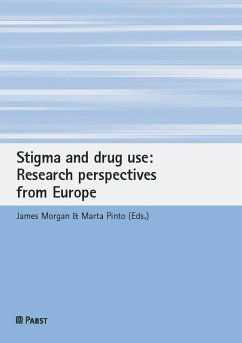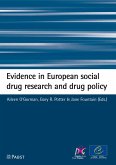Building on the historical roots of stigma, which in ancient Greece referred to physical marks used to label slaves or criminals - thus indicating ownership or inferior social status - Goffman (1963) defined the modern sociological concept of stigma as the possession of a 'spoiled identity'. He identified three primary types of stigma: physical manifestations such as scars, deformities, or disabilities, deviant personal traits such as mental illness, criminal behaviour, or drug addiction, and membership of minority groups, including ethnic or religious affiliations. Since then, stigma has evolved into a powerful concept for analysing a considerable universe of human experiences, including racialisation, imprisonment, and mental illness, along with their related consequences like social exclusion, discrimination, and feelings of shame or awkwardness. Stigma has become an essential concept in the sociological study of drug use. People who use drugs are often perceived as sick, deviant, or inherently flawed, and are thus shunned by society. Legal systems exacerbate this by labelling drug users, warning others such as potential employers about their conduct, and sometimes incarcerating them, thereby separating them from 'respectable' society. This legal branding can carry a further, lifelong stigma, in the form of a criminal record. Beyond legal consequences, certain behaviours and aesthetics associated with drug use often trigger suspicion - not only of drug use itself, but of the individual's character as a whole. This addition to the series of books produced by the European Society for Social Drug Research (ESSD) explores how the concept of stigma can be used to understand issues relating to drug use. This has been done in varying and creative ways with chapters considering specifically stigmatised types of drugs or people who use them, de-stigmatising research methods, and the role of stigma in recovery. This book is essential for those seeking to explore contemporary European landscapes of drug use, drug policy, and research with people who use drugs.
Dieser Download kann aus rechtlichen Gründen nur mit Rechnungsadresse in A, B, BG, CY, CZ, D, DK, EW, E, FIN, F, GR, HR, H, IRL, I, LT, L, LR, M, NL, PL, P, R, S, SLO, SK ausgeliefert werden.









